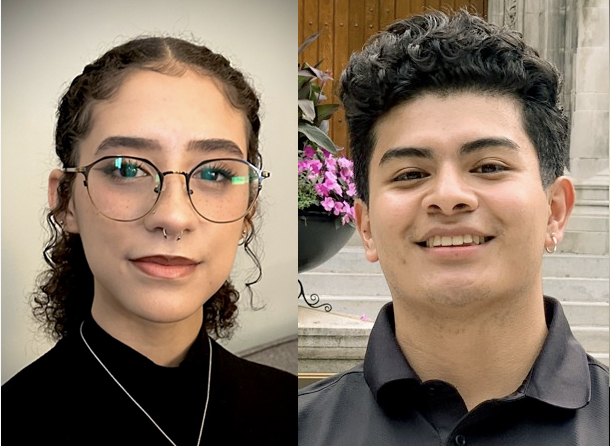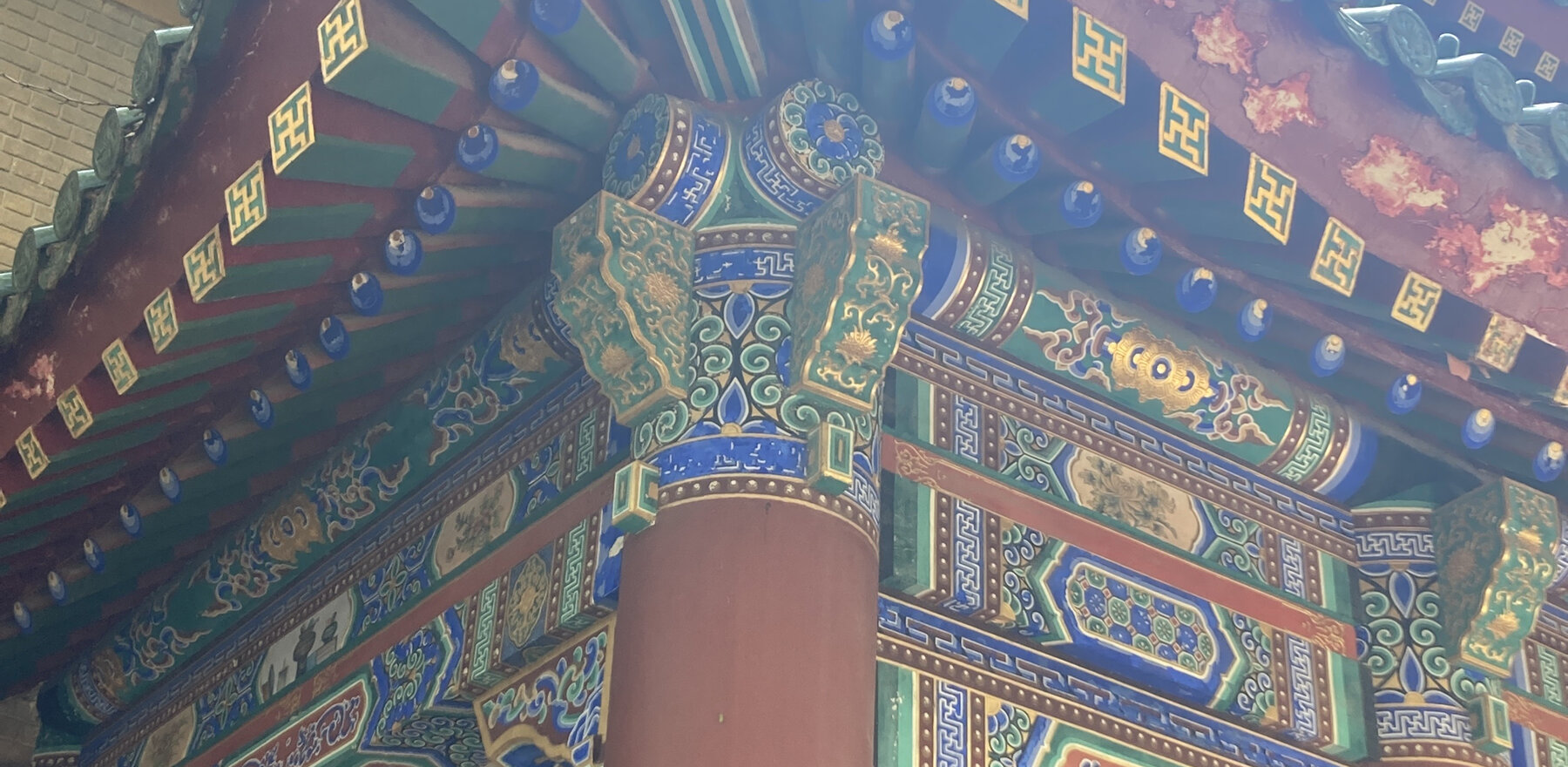Among the first Lehigh University students to study abroad in China since the COVID-19 pandemic, the experience deepens their cultural understanding and exploring U.S.-China relations
Lehigh University students are studying abroad in China for the first time since the COVID-19 crisis, providing an important opportunity for students to engage with Chinese culture, challenge preconceptions, and deepen their understanding of U.S.-China relations.

Maxine Bee ‘25 and Jorge Amigon Benitez ‘25 are both studying in Shanghai this semester, each participating in different programs through the Council on International Educational Exchange (CIEE), with which Lehigh regularly partners on study abroad initiatives. They are among the first to study in the program since the pandemic.
Both students are studying at the East China Normal University in Shanghai. Benitez, a Global Studies major who is minoring in Chinese, said he wanted to study in China because he has always had a curiosity about the world, a global mindset, and a desire to understand different cultures and societies.
“There’s so much of the world you need to see and learn and experience for yourself, and you can’t just do that if you stay in Pennsylvania alone,” Benitez said. “You need to get our there and really immerse yourself.”
Bee, who is studying International Relations and Modern Languages at Lehigh’s College of Arts and Sciences, was excited for the unique opportunity to study in mainland China, especially post-pandemic.
“I’m deeply drawn to traveling and working in global environments,” Bee said. “It’s personally important for me to be here, immersed in the society, so I can see firsthand what really goes on, experience as much as possible, and form my own opinions.”
The return of American students to China for study has been slow, reflecting broader political and pandemic-related concerns. Nationwide, only about 700 American students were studying at Chinese universities as of April, compared to nearly 25,000 a decade earlier, while almost 300,000 Chinese students are studying at U.S. schools.
Katie Radande, Director of Study Abroad at Lehigh, said American study abroad opportunities in Europe rebounded more quickly because travel restrictions were lifted more quickly, as well as due to historical ties and established programs in those countries.
However, Radande stressed the importance of diversifying study abroad offerings beyond Europe, and said Lehigh’s study abroad office has been trying in particular to support abroad opportunities for Russian and Chinese language learners in particular.
U.S. officials have advocated for increasing people-to-people exchanges, seeing these interactions as crucial for improving bilateral relations. Bee and Benitez both said tensions that have been described between the United States and China at a government level have not been prevalent in their personal interactions with Chinese people.
Both students described positive interactions with local residents, calling them welcoming, patient, and appreciative of foreign visitors in a largely homogeneous country. Before visiting China, Benitez said he had preconceived notions shaped by U.S. government and media, but his experience in the country has changed his perspective.
“They really try to make you feel at home are very welcoming,” Benitez said. “Everyone I’ve interacted with has been very accommodating, helping me with language barriers and making me feel very comfortable.”
Bee is currently taking a Chinese folklore history class and a macroeconomics course focusing on China’s development and growth. Her recent Chinese folklore project involves an investigative report in a historic neighborhood, focusing on the preservation of architecture and its impact on local life.
She is also interning at Jonas & Noon, a Shanghai-based coffee roastery. She will work in marketing management, specifically focusing on social media engagement and managing the company’s online image. Although undecided on her future career path, she is considering consulting roles with multinational companies.
Benitez hopes to one day work with global organizations like Teach for All, the Peace Corps, or the United Nations. He particularly enjoyed the course “Issues in Chinese Society." It covers social issues like marriage and LGBTQ+ rights, and encourages debates and discussions about the different perspectives Chinese and American people have of each other.
The CIEE program follows a trimester system, with six courses and an internship over three blocks. Both students said CIEE has been flexible and accommodating, helping them find courses and internships aligned with their goals.
